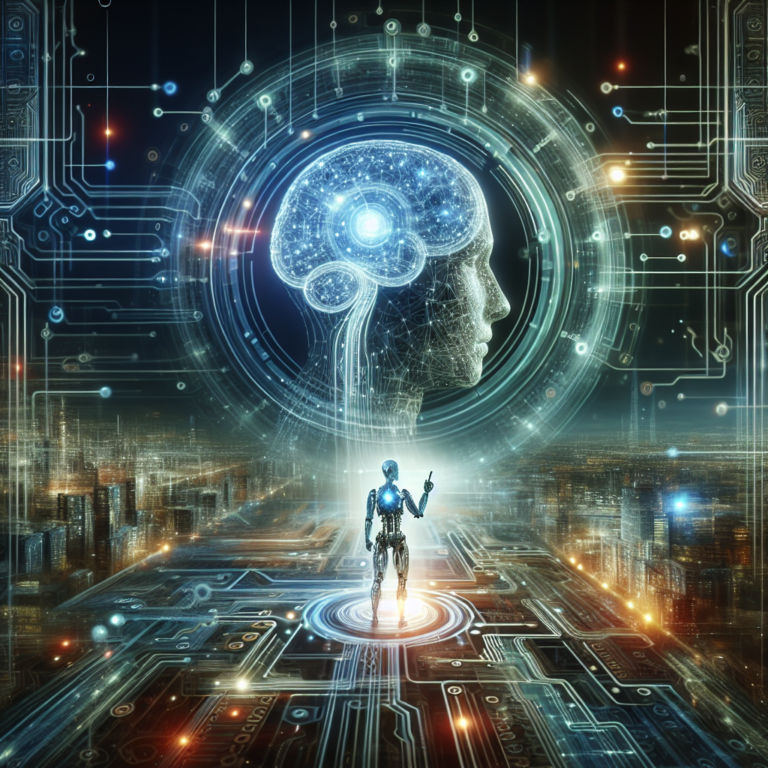Meta’s Self-Taught AI: A Breakthrough in Code Generation
Meta AI Revolution : Artificial intelligence has progressed significantly in recent years, and Meta’s self-taught evaluator represents a huge leap forward. This innovation is not merely another AI tool; it is a revolution in how machines learn, adapt, and improve without requiring human intervention. This development is set to transform our understanding of coding, automation, and the future of AI.
The Evolution of AI in Coding
To grasp the significance of Meta’s self-taught evaluator, it’s vital to consider the evolution of AI in coding over the years. Initially, AI served as a helper—tools like GitHub Copilot and Tabnine aided developers by predicting code completions, debugging issues, and optimizing existing code.
These tools have significantly enhanced efficiency, reduced errors, and accelerated the development process. However, they have always needed a human operator to guide and refine the output.
Now, picture an AI that operates without constant human oversight—an AI capable of writing its code, evaluating its results, and improving continuously. This is the groundbreaking technology introduced by Meta with its self-taught evaluator.
Meta AI Revolution : What is Meta’s Self-Taught Evaluator?
At its essence, Meta’s self-taught evaluator is an AI system capable of writing code, evaluating its performance, and optimizing itself autonomously. Human input is unnecessary once the process commences, transitioning the role of developers from coders to supervisors.
Beyond simply writing code, this AI engages in self-evaluation. It generates multiple code versions, tests them, and iteratively refines its reasoning to pinpoint the best possible solutions. Think of the AI as akin to a student learning independently, growing more intelligent with each cycle. But how does it achieve this?
Seed Language Model: The Foundation
Meta AI Revolution : Meta’s self-taught evaluator begins with a seed language model already trained to comprehend human-like reasoning and instructions. From this foundation, the AI explores a vast pool of human-written data, utilizing it to create, test, and refine its code.
The AI’s process consists of the following steps:
- It examines a task or instruction.
- It produces two solutions: one effective and one ineffective.
- It categorizes these solutions as “chosen” or “rejected”.
- It fine-tunes its reasoning through multiple iterations, learning from its errors.
Over time, the AI formulates a training set based on functional and defective approaches, ultimately grasping what defines quality code. The more tasks it completes, the more intelligent it becomes.
Why Meta’s Self-Taught Evaluator is Revolutionary
You may wonder what makes this AI so groundbreaking. Its capability to learn and adjust independently is the key, circumventing a significant bottleneck in AI development: human evaluation.
Meta AI Revolution : Conventional AI models necessitate constant supervision from specialists, which slows progress and introduces the possibility of human bias skewing results. By removing this requirement, Meta’s self-taught evaluator allows the AI to learn, adapt, and improve autonomously.
Boosting Accuracy Without Human Input
The results are undeniably impressive. When Meta evaluated the self-taught evaluator with the LLaMA 3 70B Instruct Model, which had already set a high benchmark for accuracy, the model’s accuracy surged from 75.4% to an extraordinary 88.7% after just five rounds of self-training.
Even more remarkable, this achievement occurred entirely without human intervention, removing the need for annotations or expert adjustments.Performance on Complex Tasks
The self-taught evaluator also excelled in managing multi-turn conversations, a critical function for chatbots, virtual assistants, and any system that demands an understanding of contextual interactions. The AI even surpassed models trained with human assistance, proving its capability to handle complex dialogues more effectively than traditional systems.
This represents not just a technical milestone but a paradigm shift. The AI development cycle, which once could take months or years, can now be dramatically accelerated. Organizations can deploy applications more rapidly and at a lower cost because they are no longer dependent on expert teams to train and fine-tune their AI systems.
How the Self-Taught Evaluator Impacts Business
What does this mean for businesses? Meta’s self-taught evaluator has the potential to transform industries by significantly cutting the time and cost associated with AI development.
Historically, businesses relied on labeled data to train their AI models, which often required hiring specialists to annotate vast datasets. This process was both lengthy and costly.
With the self-taught evaluator, companies can now utilize their unlabeled data to train AI models, presenting a significant advantage. Most organizations already possess extensive amounts of raw data—customer interactions, product information, legal documents—that await analysis.
The evaluator can learn from this data without the necessity for human oversight, expediting the process and lowering costs.
Scalability Across Industries
Another major benefit is scalability. Meta’s self-taught evaluator is versatile enough to be tailored for various tasks, ranging from customer sentiment analysis to supply chain optimization.
This adaptability makes it a valuable asset for sectors like retail, finance, healthcare, and technology. Organizations can implement this AI for specific requirements, and due to its ability to improve over time, they won’t need constant retraining or adjustments
Real-World Applications of the Self-Taught Evaluator
The impact of Meta’s self-taught evaluator is already resonating across multiple sectors. Here are several key areas where this technology is expected to create significant advancements:
1. Healthcare
In healthcare, AI has been utilized for diagnostic assistance, analyzing medical records, and suggesting treatment plans. The self-taught evaluator can speed up and enhance the accuracy of these processes.
AI could autonomously refine its understanding of patient data, leading to improved diagnostic tools and the potential to identify patterns in patient care that human doctors might overlook.
2. Finance
In finance, where speed and accuracy are paramount, the self-taught evaluator could be employed for tasks such as fraud detection and market trend analysis. Its ability to continuously enhance itself allows for faster adaptation to emerging financial threats or changing market conditions.
3. Retail
In retail, personalization is crucial for maintaining customer engagement. The self-taught evaluator can analyze customer behavior, forecast future trends, and optimize inventory management. This enables businesses to respond to customer needs in real-time and offer personalized experiences that are timely and relevant.
4. Technology Development
The most direct effects will likely be seen in the realm of technology development. AI can now assist in writing its code, lessening the need for large development teams.
The self-taught evaluator is poised to become a standard tool in the tech industry, aiding in the creation of everything from software applications to autonomous systems that learn and adapt dynamically.
Challenges and Limitations
While Meta’s self-taught evaluator is undeniably a game-changer, it is not without its challenges. The system’s success heavily relies on the quality of the seed model. If the initial model lacks alignment with the target task, the AI might over-optimize for tests but fail in real-world scenarios.
Moreover, although the requirement for human oversight is decreased, it isn’t completely eliminated. Periodic testing remains essential to ensure the AI stays on track and continues to deliver reliable results. There is also the risk of overfitting to benchmarks, which may inhibit the evaluator’s performance in uncontrolled environments.
The Future of AI and Coding
By harnessing Meta’s self-taught evaluator, we are transitioning into an era where AI systems can evolve independently. Consequently, the potential applications are vast, spanning from smarter chatbots and virtual assistants to autonomous systems capable of real-time learning and adaptation.
As we advance, it is vital to ensure that these technologies are developed and deployed responsibly. While the self-taught evaluator holds remarkable promise, we must remain cognizant of its implications for employment, privacy, and security.




0 Comments